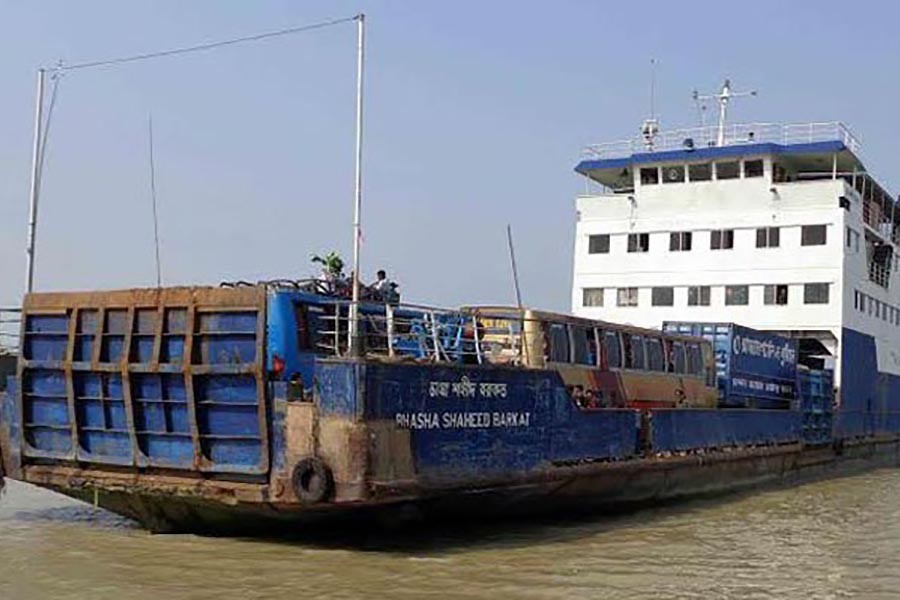
Published :
Updated :

The grand view of the 6.15km Padma Bridge and the scene showing the dismantling of engine boats used for carrying passengers between Mawa and Zajira points uphold a universal truth. The ferry boats' utility has been consigned to the grey past from whose mist emerges the majestic bridge. The universal truth revolves round the ever relevant fact of the 'new' replacing the 'old'. Many people find it hard to accept it as reality, reminding them of the pain of saying bye to primitive tools to welcome the fruits of the Industrial Revolution. The implements were absorbed in all segments of life --- from agriculture to the industrial sector.
With motorised vehicles starting to roll along the country's longest bridge, thus becoming integral to many a national activity, the ferry boats and small launches have been declared redundant. That was the only pragmatic option. Once upon a time, large and imposing ferries used to carry passengers from one bank to another --- on the Mawa-Zajira route. Now that the long-awaited Padma Bridge is in place, the ferries' necessity has been proved to be anachronistic. The situation can be compared to the use of the newly invented automobiles in place of the age-old horse carriages. Many bring up the topic of sea routes, which were once dominated by large sail ships, the oarsmen adding to their speed. Eventually they had to make way for the propeller-driven ships and those powered by steam. Modern ships are mostly run by diesel-electric engine and gas turbine. While comparing the two ways of transport --- an operational modern bridge and river ferry service --- the latter has to leave the scene.
The owners of the river vessels operating at Mawa and Zajira are now busy winding up their business. Finding not even a slim chance to return to their old profession, they are now seen dismantling their ferry vessels with a view to selling the engine boats as scrap metal. The whole scenario can be compared to a nearly similar one when the motor launches were introduced to the land in the 1950s. The reaction of the poor country-boat owners was one of protest and anger. Incidents of damaging launches, attacking their crew continued unabated for long. As expected, the launch owners hit back. It was followed by a truce of sorts. The plight of the Padma ferry owners is nothing extraordinary. Fatalists may bring up the issue of fate. In reality, all this alludes to the eventual victory of technology. Humans cannot afford to live a technology-blessed life until they welcome the newer wonders of science. Padma Bridge and the ferry vessels are not antagonistic. Theoretically, they have no clashes of interest. But stark reality shows, the ferry boat owners being the weaker and outdated segment have to give in to the national interest. They just did that.
Yet the nation owes this segment of business a lot of gratitude for their long service of ferrying people across the mighty Padma. Despite many deaths and missing in ferry capsizes in the river, the crossing of the Padma would have been a hazardous adventure without these engine boats. Now that they have to switch over to other professions or fall on hard times, the higher authorities cannot turn their back on them.


 For all latest news, follow The Financial Express Google News channel.
For all latest news, follow The Financial Express Google News channel.